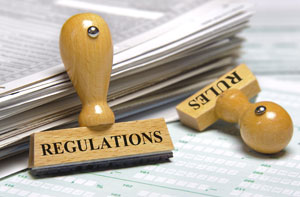Harrisburg Heats Up: Tax Bills on the Move
The 2019-2020 Pennsylvania General Assembly committees are beginning to kick out legislation for consideration by the full House and Senate. Of the hundreds of bills already introduced, the PICPA is actively following more than two dozen.
By Peter N. Calcara, vice president – government relations
Following Gov. Tom Wolf’s Feb. 5 budget address and three weeks of hearings by the legislature on his $34.1 billion spending plan, the legislative process is in full swing. The 2019-2020 Pennsylvania General Assembly committees are beginning to kick out legislation for consideration by the full House and Senate. Of the hundreds of bills already introduced, the PICPA is actively following more than two dozen. Here's a quick look at some of the tax bills on PICPA's radar.
 On the personal income tax (PIT) side, the PICPA is championing several measures that will be of interest to members and tax practitioners. The PICPA Committee on State Taxation has been working to correct problems that have arisen from changes state lawmakers made in 2017 to the withholding obligations for certain payors of Pennsylvania-source income. House Bill 926 addresses several problem areas with the 1099-MISC withholding requirement (Act 43 of 2017) on nonwage Pennsylvania source income payments made to nonresidents. House Bill 17 establishes a 10-year statute of limitations for the Pennsylvania Department of Revenue (DOR) to collect assessed personal income tax. Both bills are pending in the House Finance Committee.
On the personal income tax (PIT) side, the PICPA is championing several measures that will be of interest to members and tax practitioners. The PICPA Committee on State Taxation has been working to correct problems that have arisen from changes state lawmakers made in 2017 to the withholding obligations for certain payors of Pennsylvania-source income. House Bill 926 addresses several problem areas with the 1099-MISC withholding requirement (Act 43 of 2017) on nonwage Pennsylvania source income payments made to nonresidents. House Bill 17 establishes a 10-year statute of limitations for the Pennsylvania Department of Revenue (DOR) to collect assessed personal income tax. Both bills are pending in the House Finance Committee.
A third PIT bill advanced by the PICPA (House Bill 706) permits the executor or administrator of a decedent's estate to elect to file a combined annual income tax return for an estate and revocable trust during the period the estate is open. Identical legislation passed the state House last year, but it failed to make its way through the Senate before the session ended. HB 706 was unanimously reported by the House Finance Committee on March 27, and is pending before the full House for consideration.
Several bills have been introduced to lower Pennsylvania's 9.99 percent corporate next income tax rate. House Bill 70 lowers the rate to 5.99 percent, and House Bill 72 lowers the rate to 3.07 percent. Senate Bill 32 proposes lowering the rate by 0.5 percent a year through 2024, when the rate would level off at 6.99 percent. All three bills are pending in committee.
A "small-business reform package" has been reintroduced, too. The package of bills addresses like-kind exchanges (Senate Bill 201/House Bill 105), net operating losses (Senate Bill 202), and Section 179 expense deductions (Senate Bill 203). They are pending in the Senate and House Finance committees, respectively.
Combined reporting, one of Wolf's key tax policy initiatives, curiously has not been introduced as of this writing. The proposed change would be effective for tax years beginning in 2020, and would coincide with annual decreases in the tax rate from its current 9.99 percent to 5.99 percent in 2024 and thereafter. For more information on combined reporting, read PICPA's issue brief.
In the area of sales and use tax, House Bill 19 further clarifies the definition of "canned software" and stipulates that fees on financial services provided by financial institutions are not subject to sales and use tax. Senate Bill 471 establishes a sales and use tax exemption for certain equipment purchased by data centers and their tenants. HB 19 is pending in the House Finance Committee, while SB 471 was approved recently by the Senate Finance Committee and awaits consideration by the full chamber.
There are many legislative measures addressing sales and use tax exemptions; in fact, too many to list here.
Reducing or eliminating the state's inheritance tax is popular with lawmakers this session. House Bill 77 and Senate Bill 27 eliminate the tax, House Bill 262 eliminates the tax for children under the age of 21, and Senate Bill 28 reduces the tax on nonsibling relatives.
Finally, the area of tax credits is saturated with various legislative proposals. There are too many proposals to list here.
The session is still very young, and other issues will undoubtedly crop up during the year. Rest assured, the PICPA's government relations team and our network of volunteer committees are actively engaged with state lawmakers and monitoring the legislative activity so you can breathe easy knowing you won't be blindsided by any policy changes.
Want to learn more about PIT and advocate for your profession? Attend PICPA Day on the Hill on June 11.
Sign up for weekly professional and technical updates from PICPA's blogs, podcasts, and discussion board topics by completing the form here.
PICPA Staff Contributors
Disclaimer
Statements of fact and opinion are the authors’ responsibility alone and do not imply an opinion on the part of PICPA officers or members. The information contained in herein does not constitute accounting, legal, or professional advice. For professional advice, please engage or consult a qualified professional.






